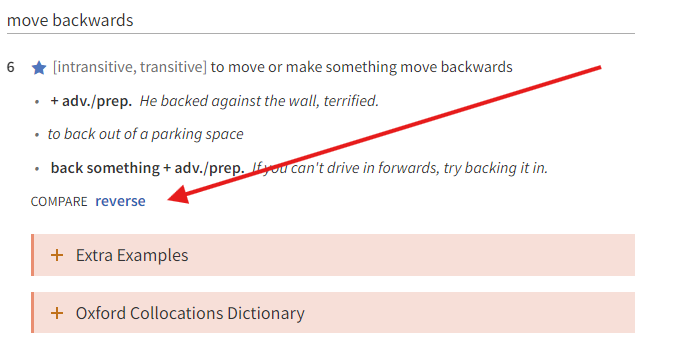Compare in this context has the sense of place these words side by side and see what further information you can learn by studying them together.
Comparing two words does not mean they are synonyms. It is likely that there will be some overlap in meaning, so that we could point to some examples where they are synonyms. But if the words are so close that they are effectively identical and therefore always synonyms, we could expect a good dictionary to describe them as synonyms.
The OP itself has a good example of this. It gives a definition of back (verb) as follows:
To move or make something move backwards
It then gives two examples of this usage:
- He backed against the wall, terrified.
- If you can't drive in forwards, try backing it in.
Now if we try to replace back with reverse in these two sentences, we find that the result is not the same. In the second sentence, it's entirely natural to say try reversing it in, and the meaning of the sentence will be unchanged. But He reversed against the wall would at the very least be considered unnatural. The two words are not synonyms in every context, and comparing them will help you to have a better understanding of both words.

